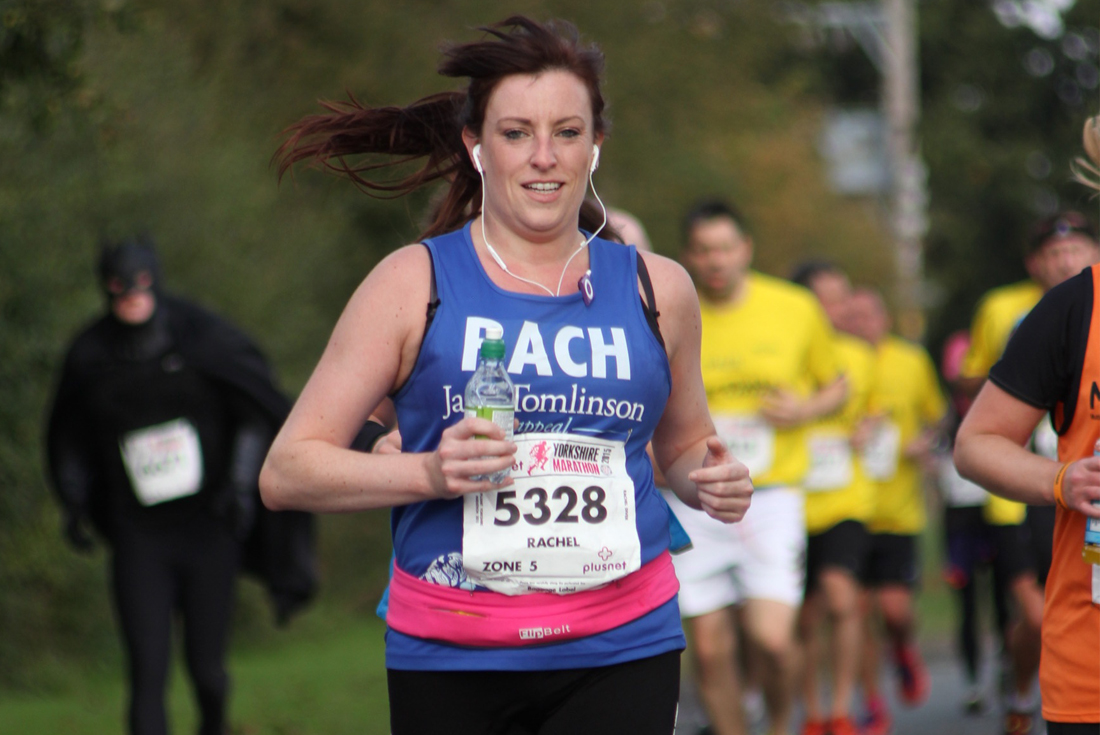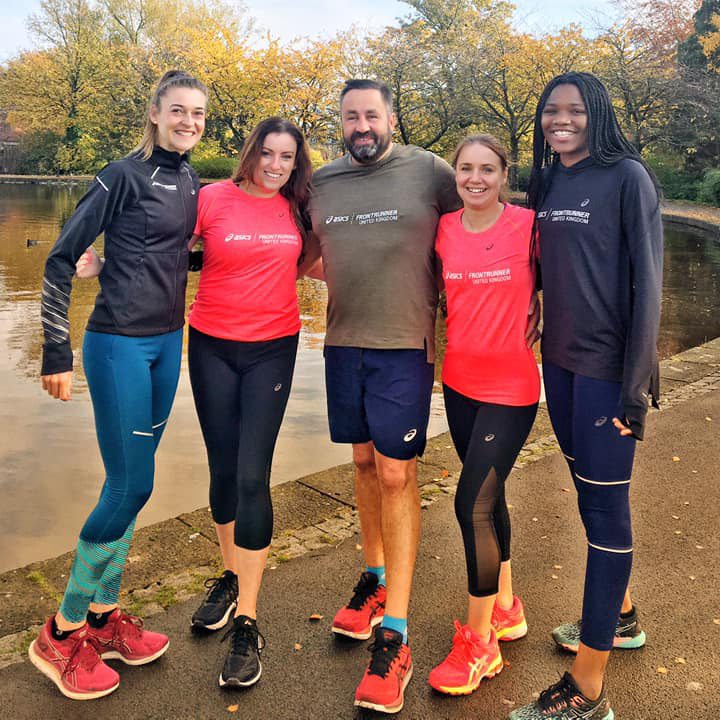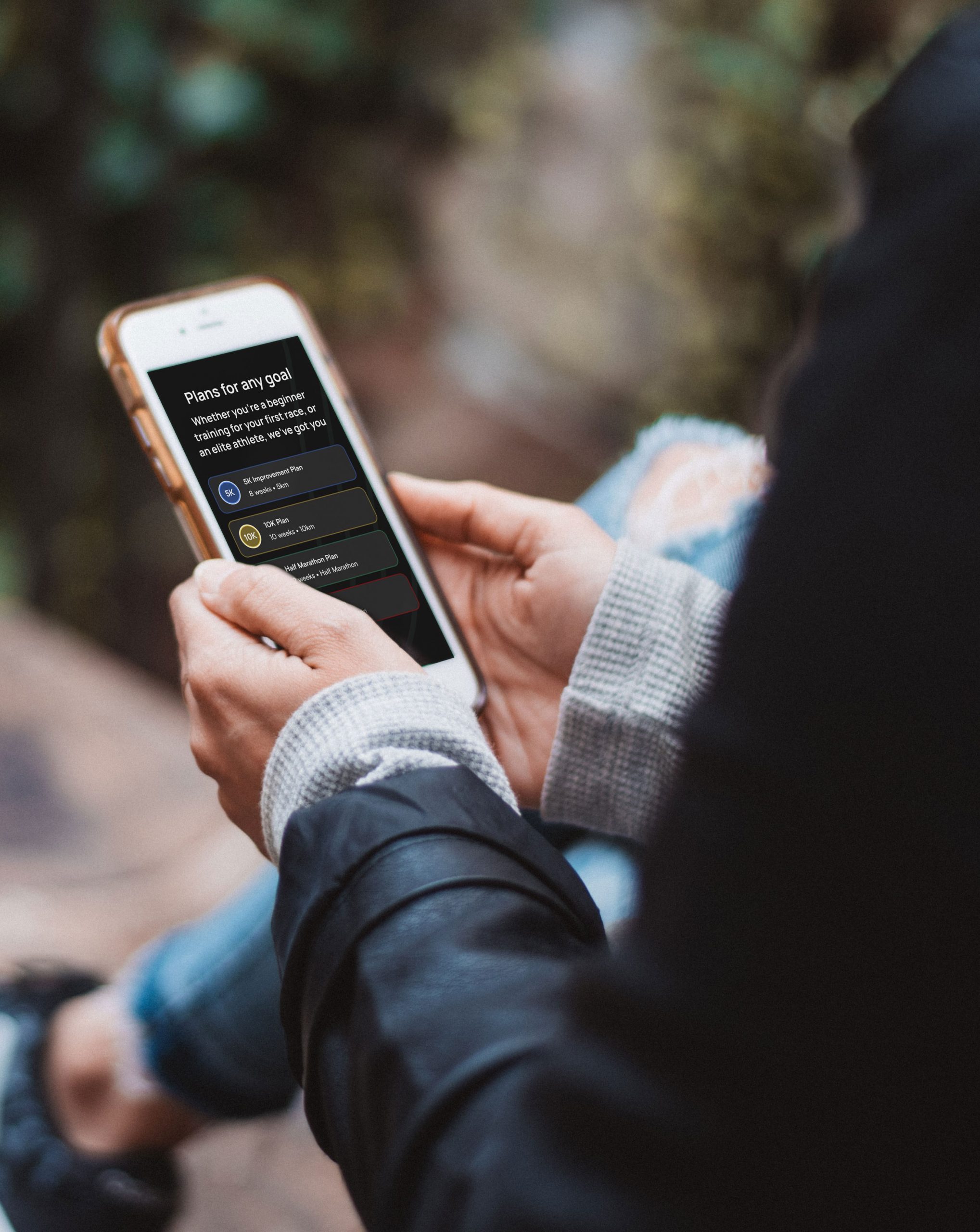
Marathon number 15 has been successfully checked off the list, and it was quite the journey! It was the 10th anniversary of the first marathon I entered – so I had to enter!
This marathon wasn’t about achieving a particular time; it was about reliving the joy of running and recreating the memories that made me fall in love with this sport in the first place. I needed a plan that would get me to the start line feeling confident and prepared! So I downloaded one of Runna Coach’s 16-week marathon training plans and wanted to share my experience with you.
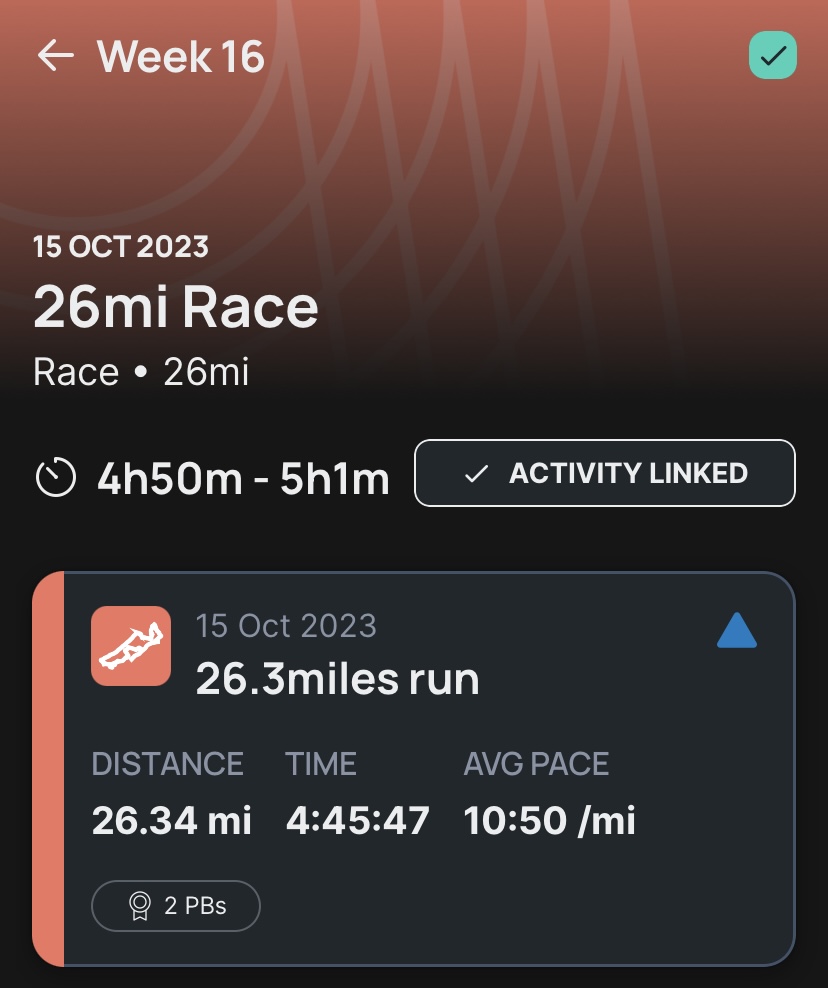
Runna Coach:
When setting up the plan and inputting my times, I deliberately chose not to use my 5K personal best. Instead, I input a time I could comfortably achieve on an easy run. The plan was tailored to my unique needs and goals, considering my current fitness level and past running experience. It was structured to gradually increase my mileage and incorporate various workouts, ensuring I was well-prepared for the marathon.
The training sessions offered by Runna Coach throughout the 16-week plan were refreshingly varied. The diversity in workouts helped prevent monotony and made the training process more enjoyable. My main struggle lay in mentally preparing for the long run, despite the helpful guidance provided by the app. Enduring those long runs solo was a personal challenge. However, the unwavering support and encouragement from Runna Coach helped to me push through.
The training plan wasn’t just about running; it included strength training that kept me physically fit and injury-free.
Despite my hatred of the long runs, I arrived at the start feeling prepared and confident.
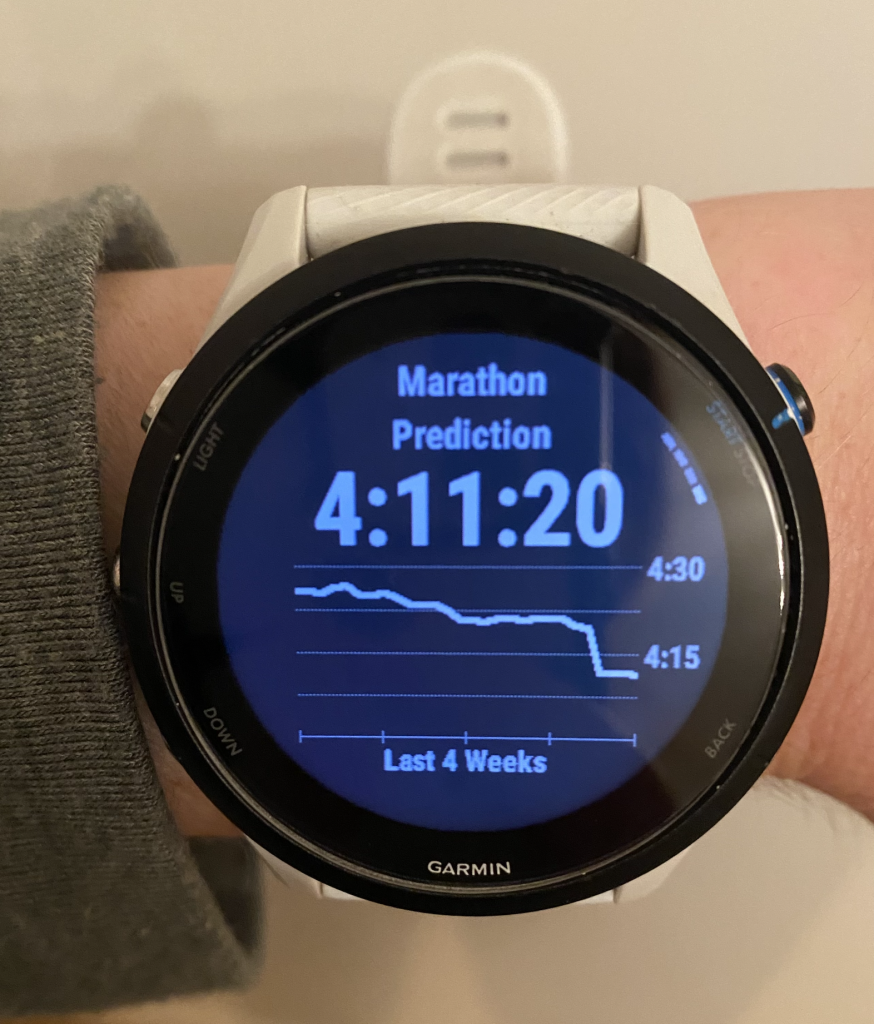
Runna vs Garmin:
Having relied on my Garmin for years during my runs, I’ve come to appreciate the precision and reliability it offers. It was consistently reliable in terms of tracking my runs and providing real-time feedback on my pace, distance, and heart rate. Additionally, the Garmin Connect app offered a wealth of data and analysis that helped me better understand my training patterns and areas for improvement.
However, during this particular marathon, both Runna Coach and Garmin made predictions that had a significant impact on my expectations.
Runna Coach’s finish time predictions were remarkably accurate. I finished five minutes under the time predicted by Runna Coach, a testament to its reliability. In contrast, I finished 35 minutes over Garmin’s prediction.
A marathon is a long and challenging slog. The difference between finishing slightly under the predicted time and a significant 35 minutes over indeed noticeable. Most of us prefer the motivation of exceeding our expectations. While Garmin’s precision with pace and distance is certainly a valuable asset for races, the time predictor didn’t quite meet my expectations for this marathon.
Working together:
My experience with both Runna Coach and Garmin was incredibly rewarding. The seamless syncing of Runna Coach with my Garmin watch made my training journey not only effective but also incredibly convenient. For those who use Coros, Apple Watch, or Fitbit, Runna Coach is adaptable and caters to a wide range of users.
Whether you’re chasing a personal best or seeking the perfect companion for a marathon, Runna Coach has a plan for you.
If you’re ready to explore what Runna Coach has to offer, I have an exclusive offer for you: enjoy 2 weeks of free Runna Coach by using the code “RWR2.” It’s an opportunity to experience the benefits of Runna Coach firsthand and take your running to the next level. Lace-up those shoes, set your goals, and let Runna Coach guide you to success!

